A recent examination related to special immune cells in the placenta conducted by research scientists at the University of Debrecen could contribute to a more profound understanding of processes and complications during pregnancy and, in the long run, even to the development of new therapeutic options. It was this group of scientists in Debrecen that were the first to provide a comprehensive genetic picture of the so-called Hofbauer cells. The findings of their international collaborative research project were published in the prestigious international journal JCI Insight.
News
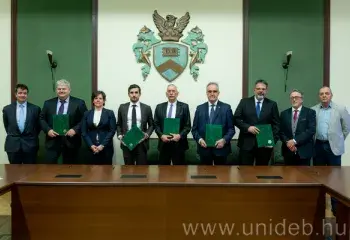
The multi-year professional cooperation between the University of Debrecen and one of the leading healthcare companies in the world, GE HealthCare, continues to increase in intensity. A framework agreement, which was signed on Friday, will take this successful joint work to the next level, where a focus on radiochemical developments as well as state-of-the-art AI-supported radiation planning processes and innovations could make patient care at our Clinical Center safer and more efficient.
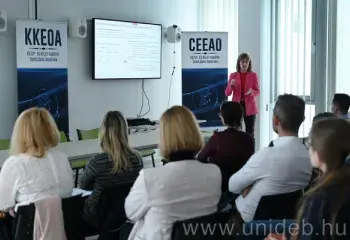
Experts from the University of Debrecen have participated in an international symposium reporting on the results of microbiome-related research conducted at our institution, while focusing primarily on its clinical and oncological implications. Besides presenting the recent relevant research results and findings, the meeting on Thursday also provided an opportunity to initiate and establish new research collaborations that would lay the foundation and provide a roadmap for new drug development programs in the future.
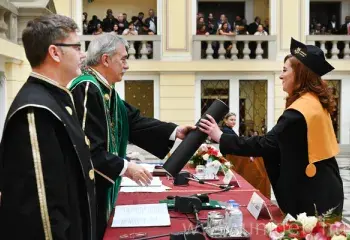
A group of recently graduated Hungarian and international students of the Faculty of Medicine at the University of Debrecen took their official medical oath on Saturday. At the ceremonial council meeting of the Faculty of Medicine, fifty-nine of these physicians received their diplomas.
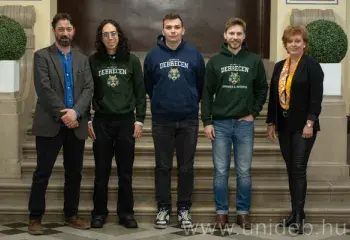
Students of the University of Debrecen did pretty well at this year’s NeuroSpark Hackathon held in Elche, Spain. Our contestants, representing the Faculty of Economics and Business, the Faculty of Engineering and the Faculty of Informatics, competed as members of international teams focusing on potential solutions of problems related to the nervous system and managed to achieve significant results.

Two UD students, who are the recipients of Excellence PhD Scholarship from the foundation Count István Tisza Foundation for the University of Debrecen, have participated in an international course held at the University of Reykjavík in Iceland, focusing primarily on the skills essential for innovation-based entrepreneurship. These doctoral students then reported on their personal professional experiences to their peers, who are also exemplary students of the University of Debrecen.
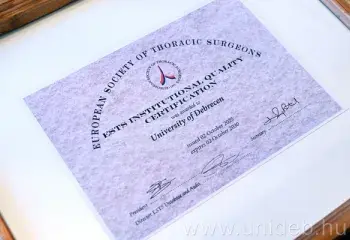
Thoracic Surgery Department (TSD) of the Surgical Clinic of the University of Debrecen has once again received accreditation from the European Society of Thoracic Surgeons (ESTS), confirming that this institution provides European-level care to patients. TSD first earned this prestigious international certification back in 2012, becoming the first such institution in Eastern Europe to do so. Since then, the certificate has had to be reearned every five years based on strict criteria.

The number of foreign students at the University of Debrecen has continued to grow, with almost 7,800 students studying at UD in the 2025/2026 academic year. Attila Jenei, Director of the Coordinating Center for International Education, advocates the continuous development of the English-language training system to maintain the popularity of the institution in the international student market and to increase competitiveness.
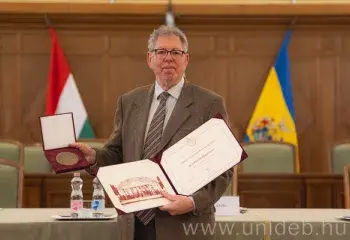
The Faculty of Medicine of the University of Debrecen awarded this year’s Debrecen Prize for Molecular Medicine to molecular geneticist Jeffrey M. Friedman, a medical researcher at the Rockefeller University of New York. The professor and his colleagues identified leptin, a hormone produced by adipose tissue, which plays a role in regulating body weight. Professor Jeffrey M. Friedman received the award at a ceremony held at the University of Debrecen on Tuesday, after which he gave a lecture on the causes and treatment options of obesity.
